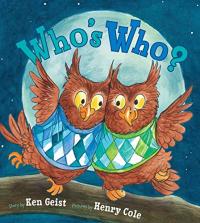
In this simple, lyrical story, a wide-spreading tree and a busy road grow simultaneously, even as time passes and the footsteps of people and animals give way to speeding cars, buses and trucks. The illustrations, in pen-and-ink with vibrant blocks of color, have a classic folk-art feel — and yes, the author and illustrator do really share the same name (except for the last letter!).
Out of the Way! Out of the Way!

Moving to a new place is hard enough without finding a bunch of mean, nasty ghosts in the closet. This looks like a job for Hanuman, the Hindu monkey god who can change shape in the blink of an eye and chase goblins, and demons away with his thundering voice. When Hanuman answers Anu’s plea for help, she rejoices — until she realizes those pesky ghosts don’t seem to be going anywhere. Uma Krishnaswami effortlessly weaves motifs from Indian mythology into this lively story.
The Closet Ghosts

Product Description: Meena is excited about the class play, a new and improved version of Red Riding Hood, until she learns that she must play one of the trees in the forest. She is just too clumsy to be a quiet, steady tree. One day at the Indian grocery store, Meena sees a yoga class in progress, and the store owner convinces her to try the children’s class. Little does Meena know she is about to find a way to grow from the inside out, just like a tree, and move beyond her feelings of clumsiness and frustration.
The Happiest Tree: A Yoga Story

The Broken Tusk: Stories of the Hindu God Ganesha

Product Description: Although Maya has done her best to avoid it, she is spending part of her summer in Chennai, India, with her mother, who is trying to sell her grandfather’s old house. Soon Maya is drawn into a complicated friendship with the eccentric housekeeper, Kamala Mami, and she is forced to examine the history of her parents’ divorce — all the more painful because she believes the trouble began with the choosing of her name. It is only with the help of Kamala Mami and her cousin that Maya is able to see what really happened to her parents and let go of painful memories.
Naming Maya

Remembering Grandpa

In this anthology, Krishnaswami has collected and retold 18 traditional tales which originated in the Indian subcontinent, all with female protagonists. Many of these simply told stories feature a heroine who must stand up for her beliefs…(E)very story is followed by a helpful note that provides context and cites sources. — Kirkus Reviews
Shower of Gold: Girls and Women in the Stories of India

Zebra lines up participants to begin this very funny alphabet book. As A bounds up stairs to take the stage, Zebra peeks out. All goes smoothly until Moose says D is for Moose, bouncing Duck; Moose continues to irritate other letters until Z. Children who know the alphabet will delight in the slapstick humor and satisfying conclusion.
Z is for Moose

What happens when you plant a kiss? After “Doubt./Pout./Sprout!/SHOUT! SHOUT!” comes the sharing — and ultimately “endless bliss!” Simple, lined cartoon illustrations highlighted by sparkly kisses on open pages combine with brief rhythmic language to create a joy-filled book just right to share.
Plant a Kiss

Henkes’ first easy reader introduces Penny and her mouse family in two appealing chapters. Penny must wait to share her original song until after dinner. When she does, not only do her parents join in, the babies respond in a surprising way. Henkes’ signature illustrations expressively complement the well-paced narrative.
Penny and Her Song

Pigeon (of Don’t Let the Pigeon Drive the Bus! (opens in a new window) fame) is back. Here, he’s irritated that a very polite duckling gets a cookie by simply asking! Could good manners really matter? Understated humor abounds in both minimal text and characteristic illustration.
The Duckling Gets a Cookie!?

Dini, a young dinosaur, desperately needs a bath after playing in the mud. Young readers will quickly figure out that before he washes, he must take off his shoes, pants, etc. The repetition is sure to delight the youngest as they identify what Dini has left. Text and simple, flat illustrations show “Dirty Dini Dinosaur” as he splashes in the tub and into his loving mother’s arms.
Dini Dinosaur

Dinosaurs ready for the dance contest in this silly, lively, lighthearted look at popular programs. Rhymes and wordplay present dressed up dinosaurs doing everything from tap to the twist until the unnamed dino-emcee comes for his dinner — the contestants!
Dancing with the Dinosaurs

Moms and dads often do the same things in different ways but one thing they share in common, they both love their children “the exact same way.” Lighthearted illustrations and a predictable narrative depict the lively, affectionate relationship between a young child and her parents.
Daddies Do It Different

One day the little Bunny, called honey by his mother, is separated from her while playing in the woods. They reunion comes when he hears her call for ‘Bunny, my honey!’ All’s well that ends well in this comforting, attractive book by the illustrator of Guess How Much I Love You.
Bunny My Honey

Larry, like the boy who cried wolf, is known for his prevarication. He winds up a hero, however, when he tells the truth about space aliens. Illustrations in comic book format and jazzy rhyming text and coded alien-speak are sure to tickle funny bones.
The Boy Who Cried Alien

Sophie longed to join the ballet class she watched through the window but she wondered if the teacher would accept her — after all, a swan is not the typical student. Humor combines with ballet in gentle, realistic, expressive illustration for a droll and satisfying story.
Ballerina Swan

Meet Ana, a young girl who loves to read. There aren’t many books in her small Colombian village, though — until the day Ana meets the Biblioburro, a librarian who brings books through the mountains on the backs of two strong donkeys. Inspired by the heroic efforts of real-life librarian Luis Soriano, this story asks readers, “How far would you go for a book?”
Waiting for the Biblioburro

In this rhyming celebration of doubles, twin animals live on farms, in jungles; they race and play and make noise — sometimes to the comical chagrin of others around them seen in expressive, droll illustrations. Readers may recognize the rhythmic pattern of “Over in the Meadow” with a fresh twist.
Who’s Who

One Saturday, Esme who lives with her grandparents on a farm, goes with her grandfather to the county auction to buy the animal promised. The girl chooses Trudy, a small brown and white goat, and discovers a strong bond with this very special animal. Richly toned paintings depict the affection and farm life — concluding with a lovely surprise for Esme.
Trudy

An unlikely friendship develops between a small, basket-weaving mouse named Celeste and the young apprentice to the great naturalist, Audubon. They meet when Joseph accompanies Audubon to New Orleans to paint the birds of Louisiana. Evocative pencil drawings add information as well as emotion in this unique, attractive, sometimes sad, but always riveting blend of fact and fantasy.
A Nest for Celeste

During his first spring, the narrator was shorter than the grasses but grew into a fine but small evergreen tree. When people with saws came, they took the little evergreen by its roots where it was decorated with sparkles then planted. Lush, realistic illustrations show the passage of time and how the no longer small evergreen provided a home to other creatures.
The Littlest Evergreen

All mama bears must sometimes be separated from their cubs if only for a while, Little Bear’s mother tells him. But her love is constant and whenever a kiss is needed, Mama and her cub can take one out of a special box. Soft, expressive illustrations convey their sharing and love. A storyteller’s note may inspire others to make their won Kiss Boxes.
The Kiss Box

Translucent watercolors and short, varied poems take readers on a trip to the sea. There they meet sea birds, fish, coral, and more in each short verse. Evocative language creates memorable images of the sea and its often hidden treasures.
